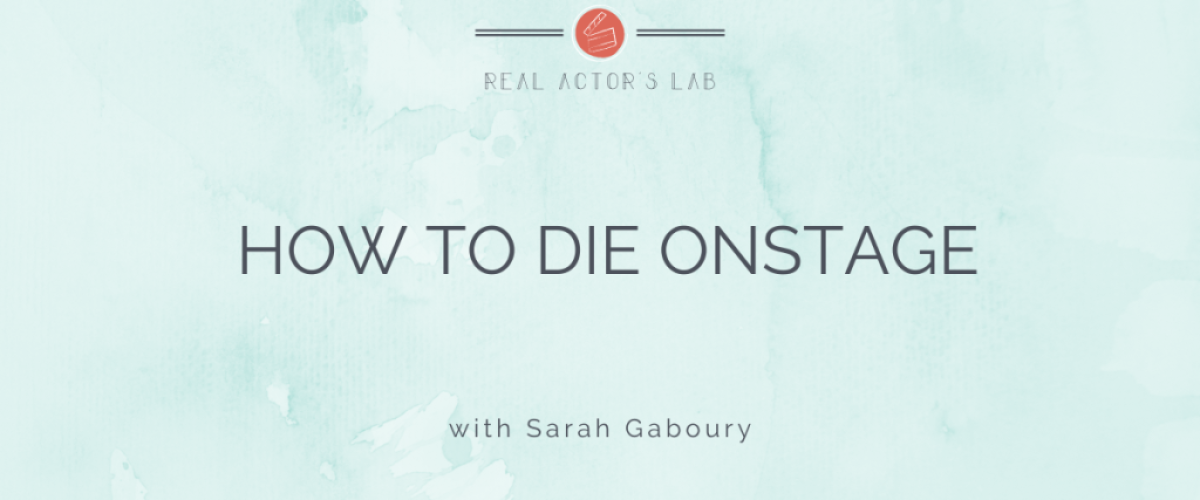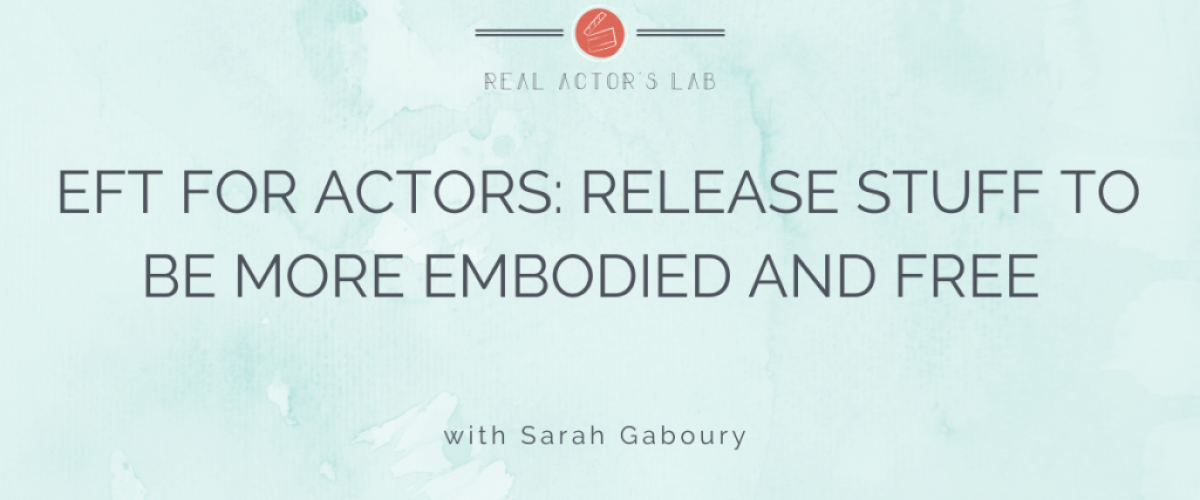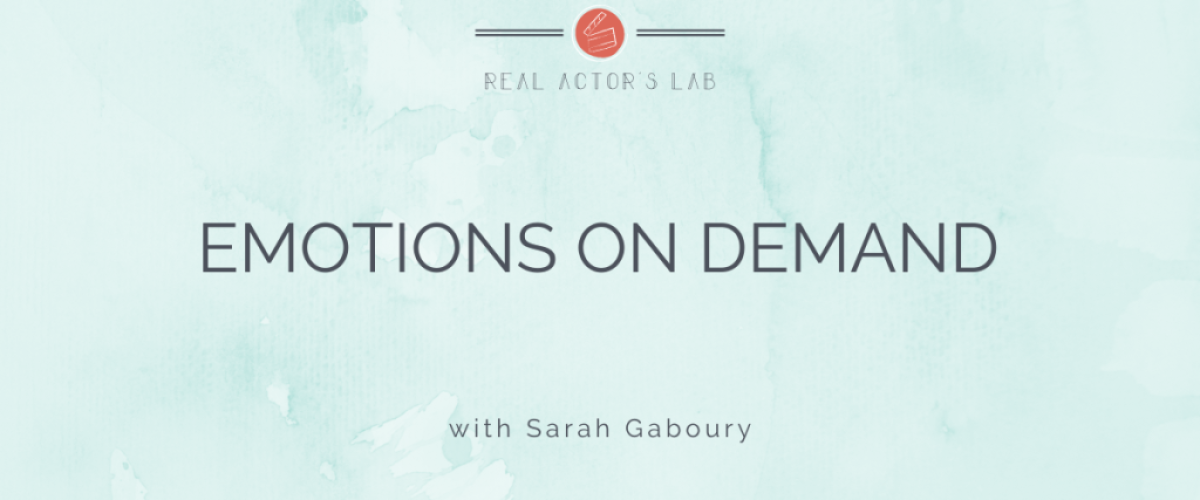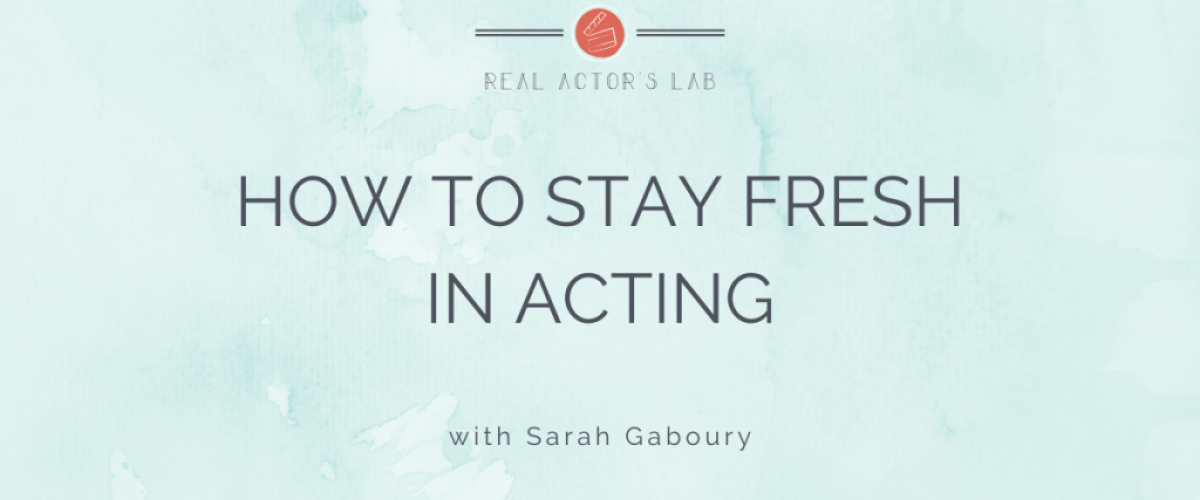How to die onstage, stay active and make bold physical choices
What happens when you have to do something extreme onstage that you’ve never done before—like die? Can you learn how to die onstage? And can you simply explore that physical death or should you also include the external world? Can you do both?
A student brought this up in class recently and it was so great to talk it through, because extreme moments of physicality can be intimidating for a lot of actors. But they’re also exciting – from the actions you play – to the ways you experiment with getting grounded and deeply in your body – playing intense physical scenes asks you to use your imagination to take something you do understand to a whole other level.
Do you know what it feels like to touch a hot pan by accident? What might it feel like to leave your hand on the pan? Maybe that’s the pain you go to if your character gets their hand cut off. Is your character having an allergic reaction and their throat is closing? What do you remember about a time you choked on food and felt a brief flare of panic? How can you use the memory of your senses as the kernel you prepare with and let it expand from there?
Make sure you check out the conversation from class for this one, because there’s so much more than how to die onstage, and it’s juicy!
CLASS CLIP TRANSCRIPTION
Student: I think what’s interesting, and maybe I’m just getting actor-y about it…like you’re dying, right, so like so much of your body is just trying to stay alive that I feel like you’re kind of going in and out of lucidity and in and out of being able to receive that information and clock that, you know. There’s so much happening that is physical because you’re bleeding out and you know you’re dying. Like that time is coming. I think that creates a really interesting obstacle when it comes to intention because so much of it is…it’s all inside, and like yes, you’re begging and you’re seeing something come from them, but I feel like if that was really happening to you, your priority is different. You know what I mean?
Sarah: Yes. And you might find ways to shift who you’re trying to affect. And it might be that you’re trying to affect your own self in a moment. There’s an example that I use sometimes. I think it was Ralph Fiennes when he was doing Hamlet. And he was doing to be or not to be, and he knew, he was like, how do I make this active? In Shakespeare they’re doing soliloquies, and often you can talk to the audience, and he really felt like he was working something out for himself in that moment. So what he did was he imagined he was talking to his own Hamlet brain, out there in the ethers, and trying to affect his brain, in order to make it active, which I thought was so genius. So there may be ways in which you’re creative…it may be that you’re playing actions sometimes, more than you normally would, to yourself. Of like, to come up for air, to…you might even talk to God sometimes, you know. To cling. To cling to life.
Student: That’s beautiful.
Sarah: But I would really use as many sensory things as you can here. Trying to imagine things that you could, you know…there’s another death moment and I can’t remember the actor who said it but it was talking about this death scene that was getting all these rave reviews onstage, on Broadway. And people were like, “How did you do it!?” And he finally revealed, that he literally, it was like this incredible death, and everybody was like, “Woah, how did he die like that?” And he said, “I imagined this drop of ice water going down my spine.” And it was this beautiful slow thing that was just really specific to him. So you can go and find some things that for you, like what would it be like in this moment if I imagined choking on a Bocce ball?
Student: yeah…
Sarah: You know, what would it be like if I had a bowling ball rammed down my throat? I don’t know, you know, you’ll find things. What would it be like if someone, you know, ripped duct tape off of my skin? Right, things that you can imagine like, ahhh! Having my hands, you know, pressed against a hot stove. Or even like the smell of like shit and vomit.
Student: Damn. Yeah, it’s so visceral. It literally, like, those combinations of words cause a reaction, you know, just hearing it.
Sarah: Yes! And it’s the same thing with actions, so when you start…and there’s also this new science around the brain and emotion and how, really emotions is produced by some of these…so we know now, just thinking these active words, starts a physiological response in the body, whether or not you can even see it. Like you might start, your thumb might start to twitch or you might start to sweat a little bit or your heart might speed up, you know?




